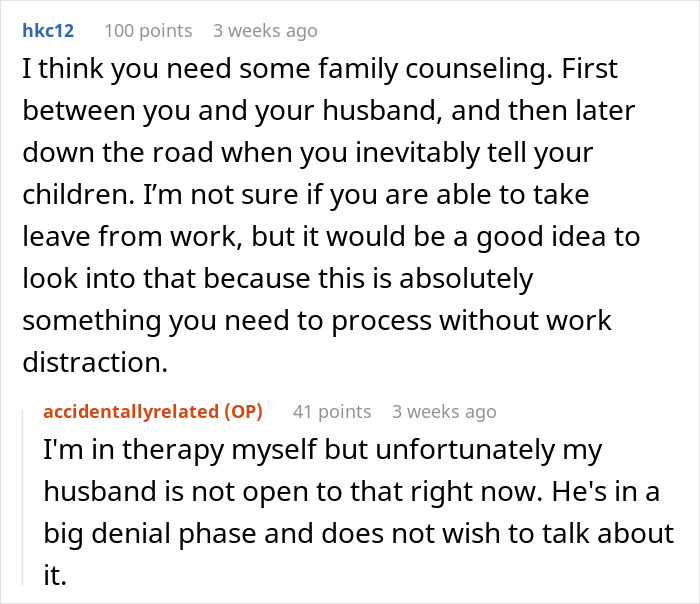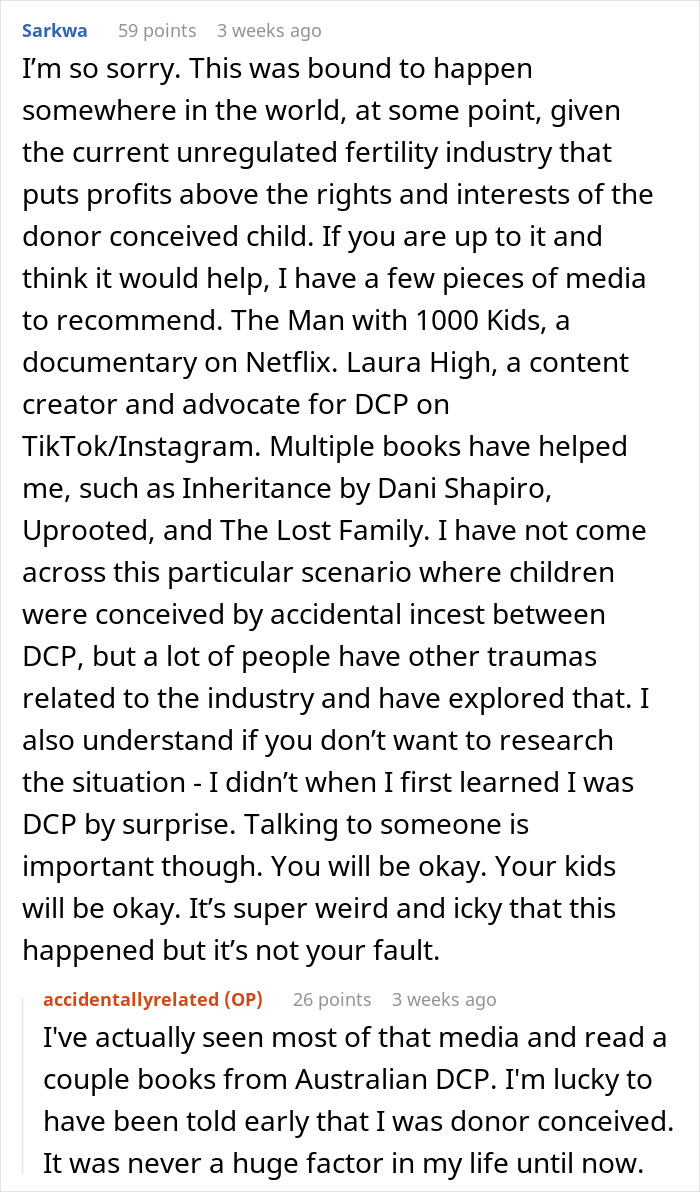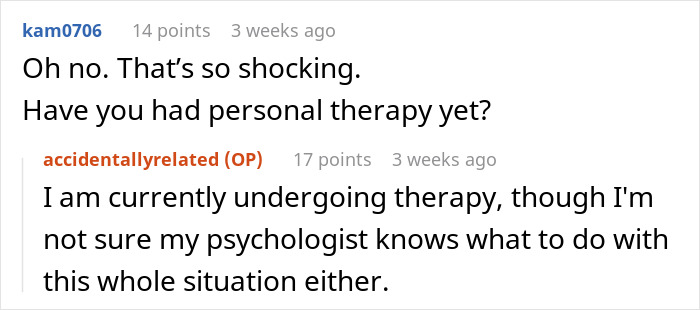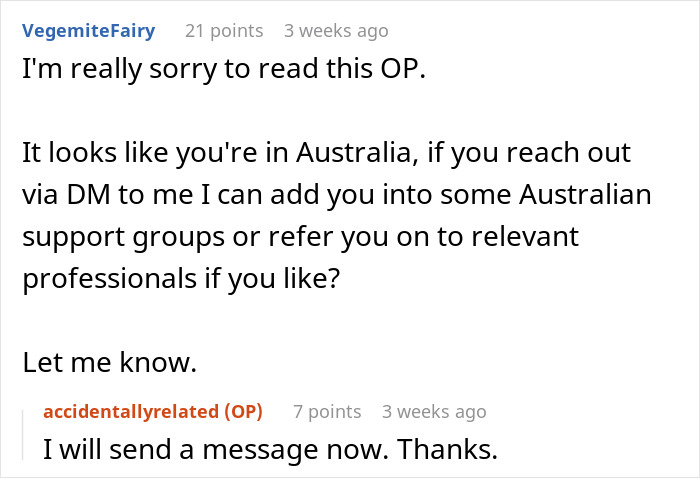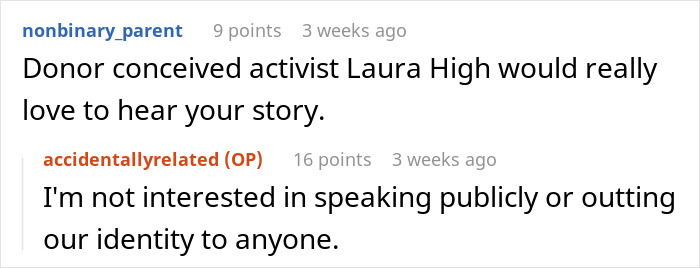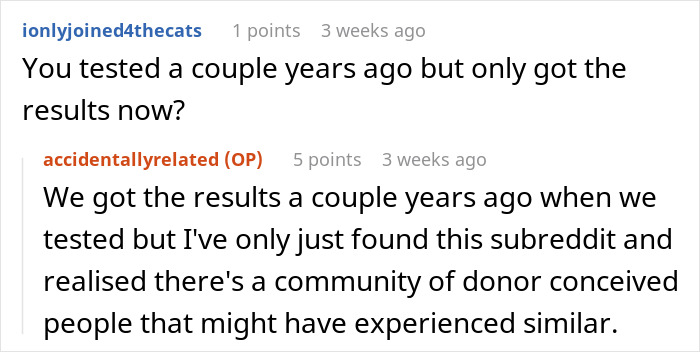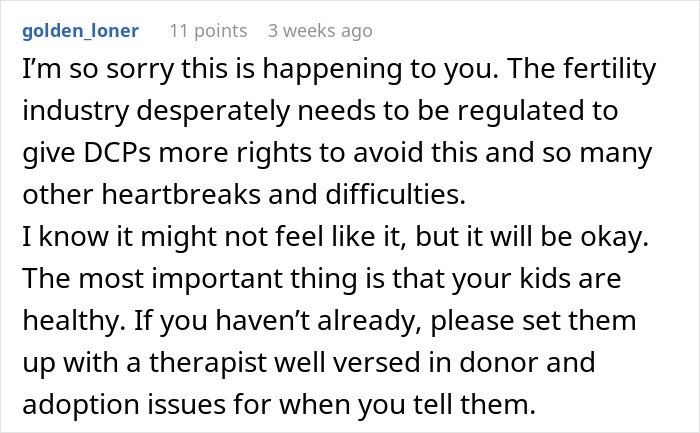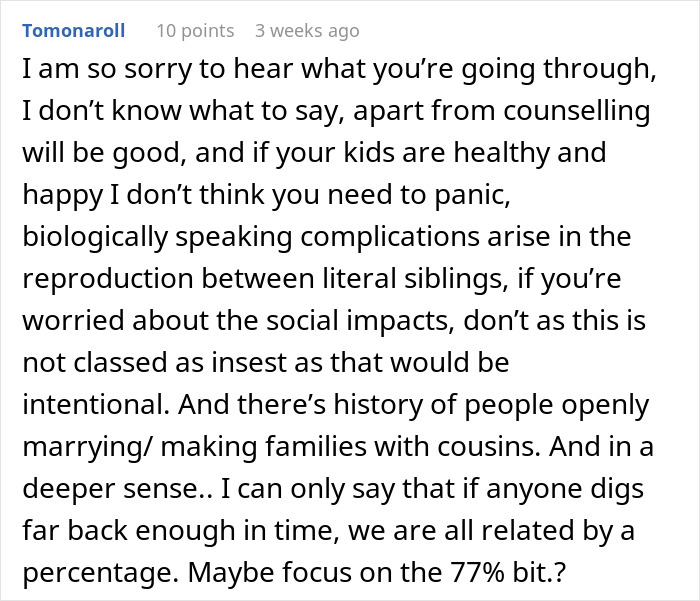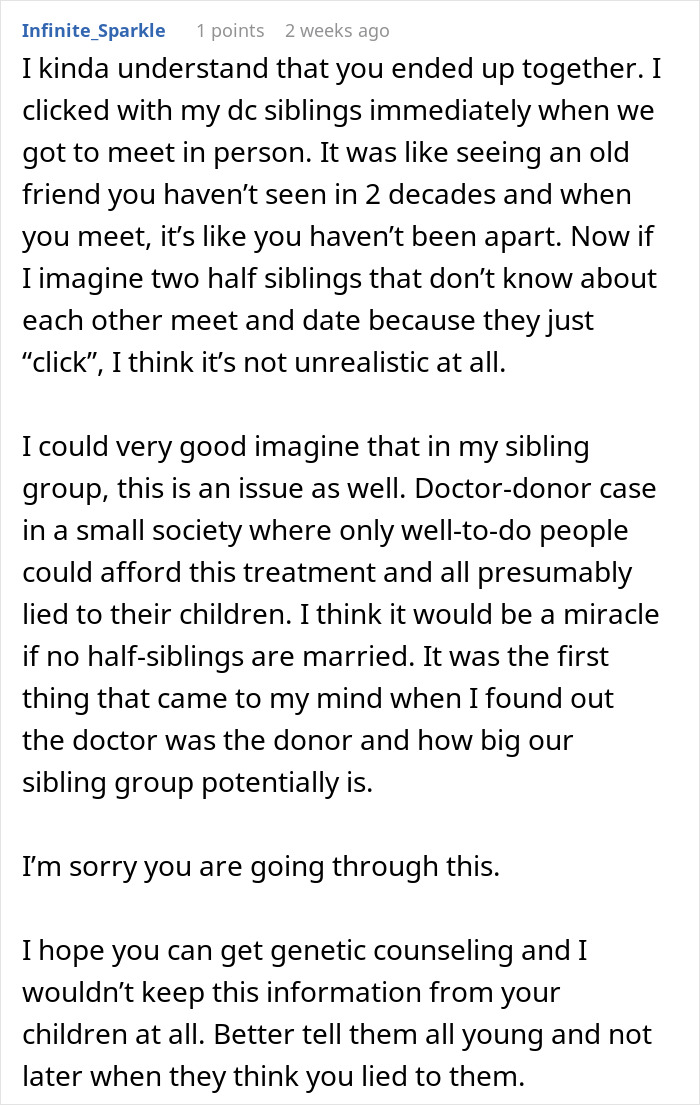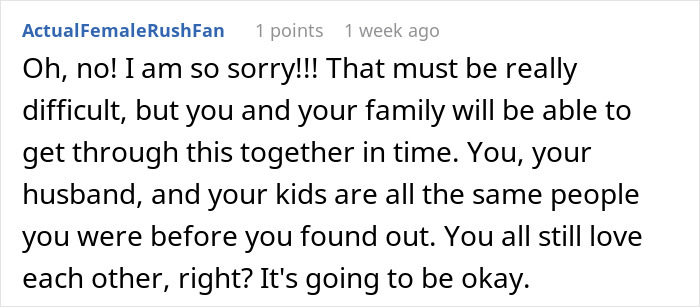If you need proof that life can be stranger than fiction, then this woman’s story is it. Last month, she turned to the subreddit ‘Donor Conceived‘ to share a discovery that would shake anyone’s sense of self: a DNA test taken on a whim supposedly revealed a life-altering connection between herself and her husband. Turns out, they’re not only romantic partners but also half-siblings. The news raised so many difficult questions about personal identity and family that she really needed someone to relate to through this unexpected experience.
DNA tests can uncover unexpected secrets

Image credits: Alex Green/Pexels (not the actual photo)
This woman, for example, discovered that her partner is more than just her husband
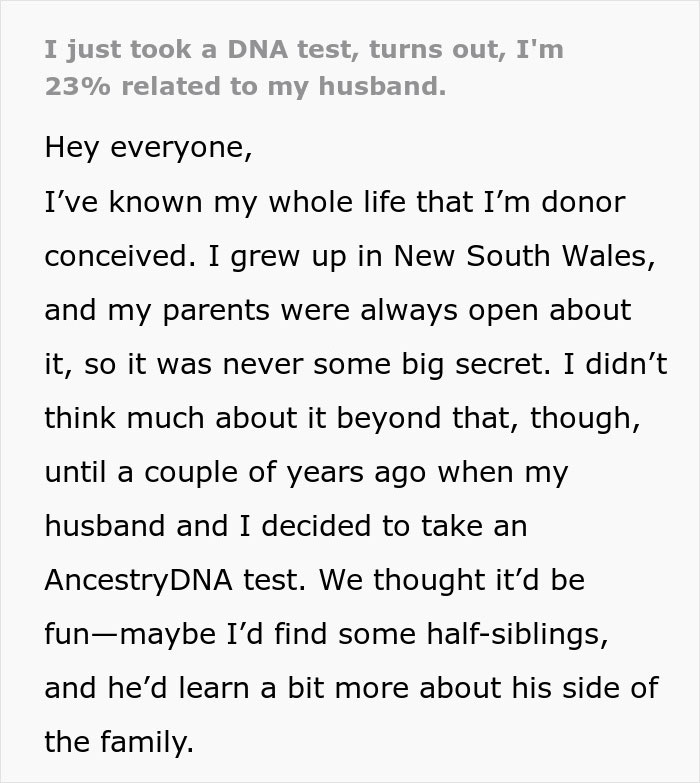
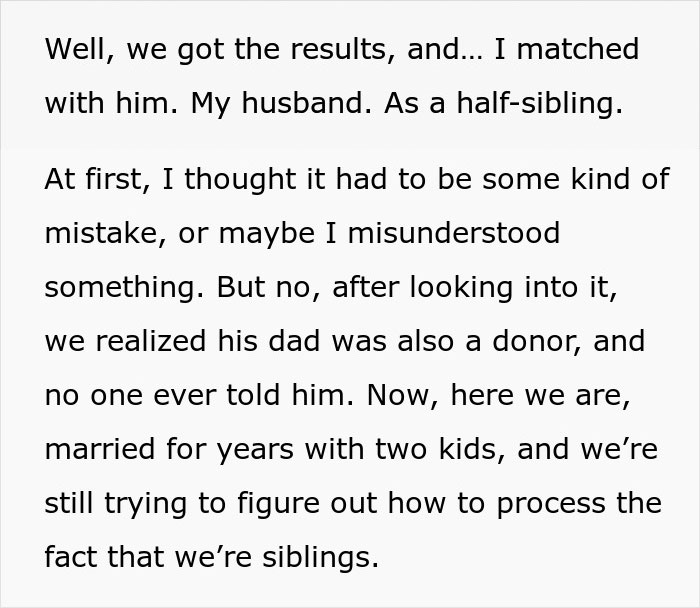
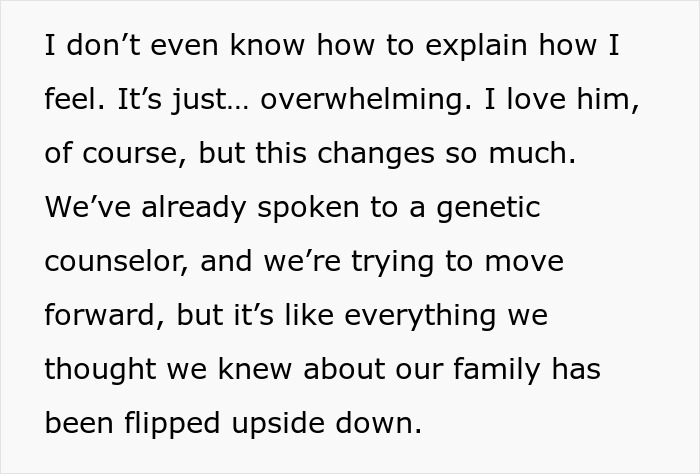
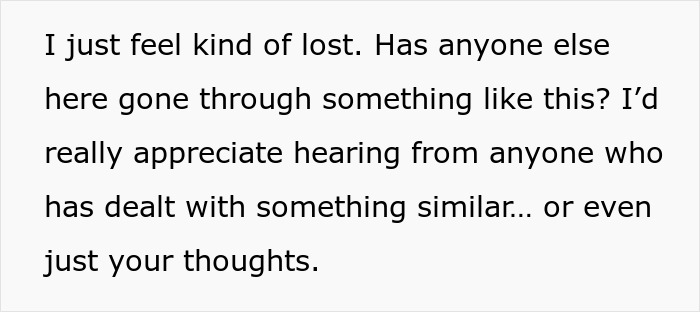

Image credits: MART PRODUCTION/Pexels (not the actual photo)
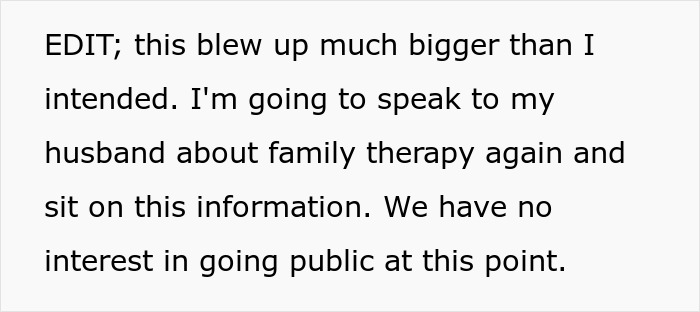
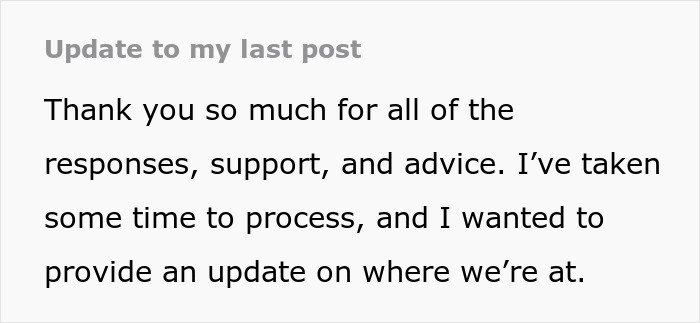
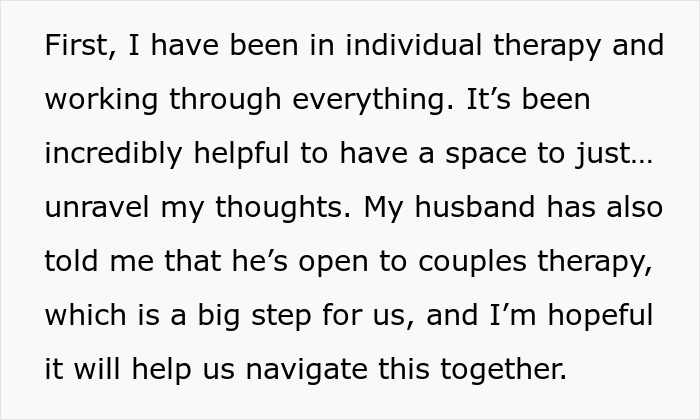
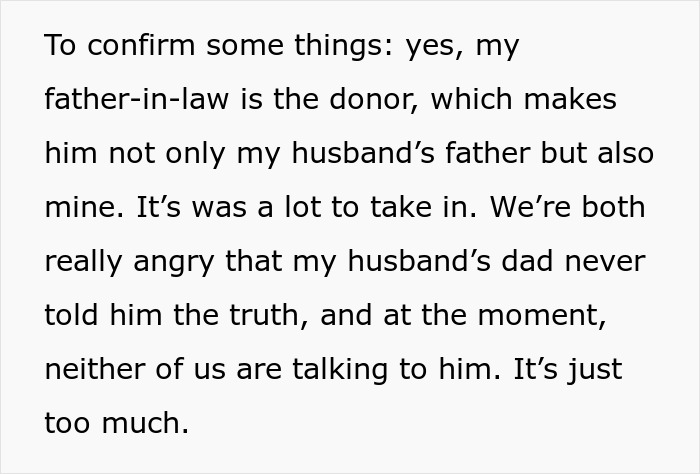
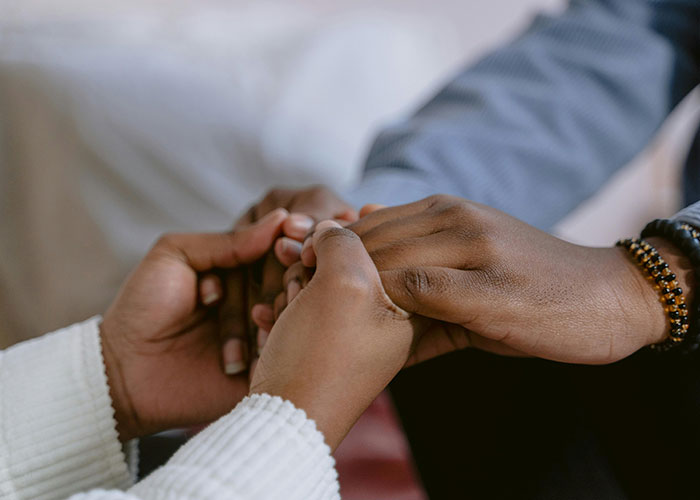
Image credits: Tima Miroshnichenko/Pexels (not the actual photo)
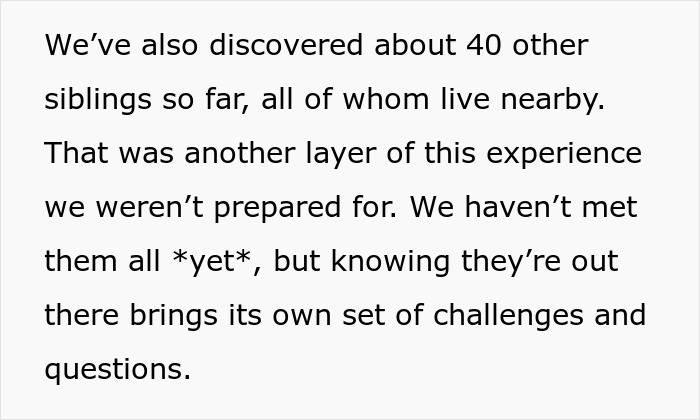
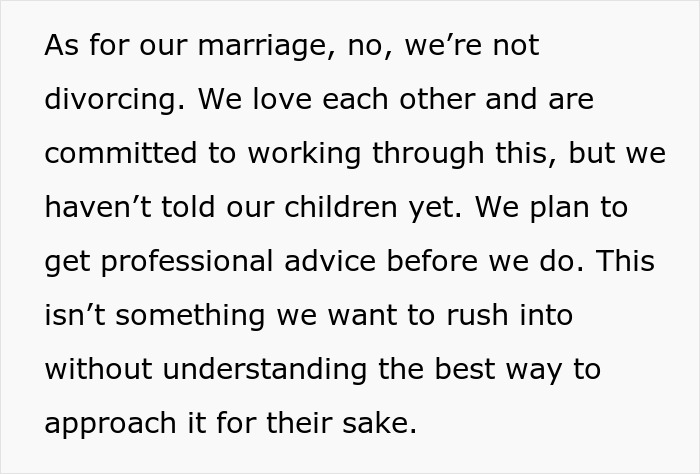
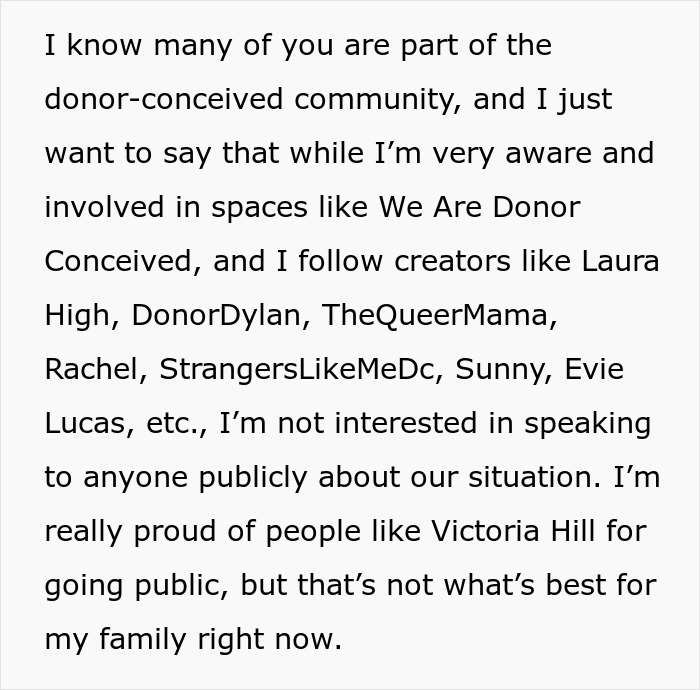

Image credits: accidentallyrelated
Some countries provide donor-conceived people with more rights
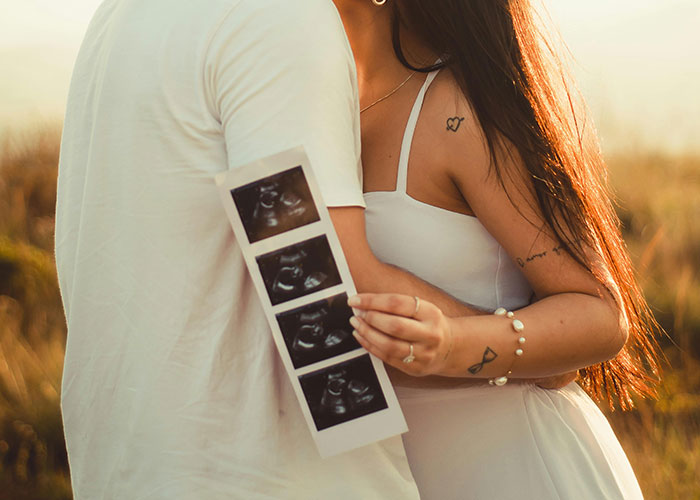
Image credits: Amanda Lemos/Pexels (not the actual photo)
By some estimates, there are over 1 million people in the United States who were conceived using donor egg or sperm and, of course, many more over the world.
Some places have policies to lower the chances of something like this happening. While anonymous donation, in which the donor’s identity is not available to the donor-conceived person, is common in the US and Canada, many European countries, including the United Kingdom, Germany, Norway, and others, require that the donor’s identity be disclosed when the donor-conceived person comes of age (typically 18). And there’s good reason behind this.
This year, researchers at King’s College in London published a systematic review of studies investigating the psychological experiences of donor-conceived people. It includes qualitative and quantitative data from 50 studies with over 4,500 adult and child participants.
On the whole, the evidence showed that donor-conceived people have equal or better psychological outcomes than individuals conceived without using a donor. However, the review also found that a minority of donor-conceived people reported mental health and identity struggles, including difficulties with identity formation, mistrust, and concerns regarding genetic heritage. There was also evidence of significant shifts in family relationships after learning that they were conceived by a donor.
A 2021 survey of 143 donor conceived people by researchers at Harvard Medical School’s Center for Bioethics discovered that about 94% of them were, in fact, conceived anonymously. Additionally, nearly 85% reported a change in their “sense of self” when they learned the truth and about 50% received counseling to cope with the discovery. Almost 74% said they “often” or “very often” think about the nature of their conception.
The researchers noted that DNA testing should come with louder warnings about the possibility of finding unknown siblings or family secrets, which can cause significant emotional pain—and this Reddit post is an example why.
This particular story sparked a broader discussion about family and identity
